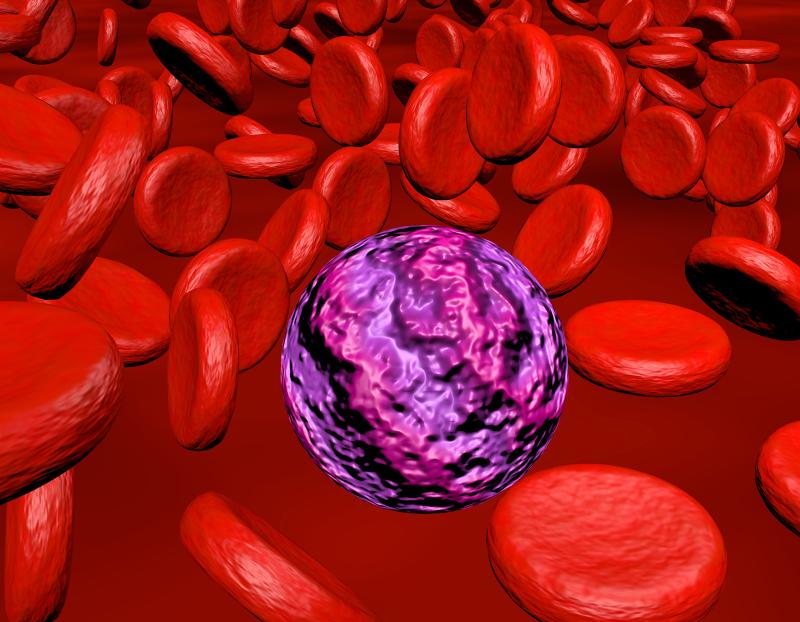
The allosteric inhibitor asciminib shows clinical activity in heavily pretreated patients with chronic myeloid leukaemia (CML) who have failed or cannot tolerate tyrosine kinase inhibitors (TKIs), including those who do not respond to ponatinib and harbour a T315I mutation, according to the results of a phase I dose-escalation study.
A total of 141 patients with chronic-phase and nine with accelerated-phase CML, who were resistant to or had unacceptable side effects from at least two previous ATP-competitive TKIs ,were included in the analysis; 70 percent of them had received at least three TKIs.
The patients received asciminib once or twice daily at doses of 10–200 mg. The maximum tolerated dose was not reached over a median follow-up of 14 months. In the chronic-phase CML group, 34 patients (92 percent) with a haematologic relapse achieved a complete haematologic response, and 31 (54 percent) without a complete cytogenetic response at baseline showed a complete cytogenetic response.
By month 12, a major molecular response was achieved or maintained in eight patients deemed to have resistance to or unacceptable side effects from ponatinib, as well as in five patients with a T315I mutation at baseline. Clinical responses were durable, with a major molecular response sustained in 40 of 44 patients.
Dose-limiting toxic effects included asymptomatic elevations in the lipase level and clinical pancreatitis. Frequently reported adverse events were fatigue, headache, arthralgia, hypertension and thrombocytopaenia.